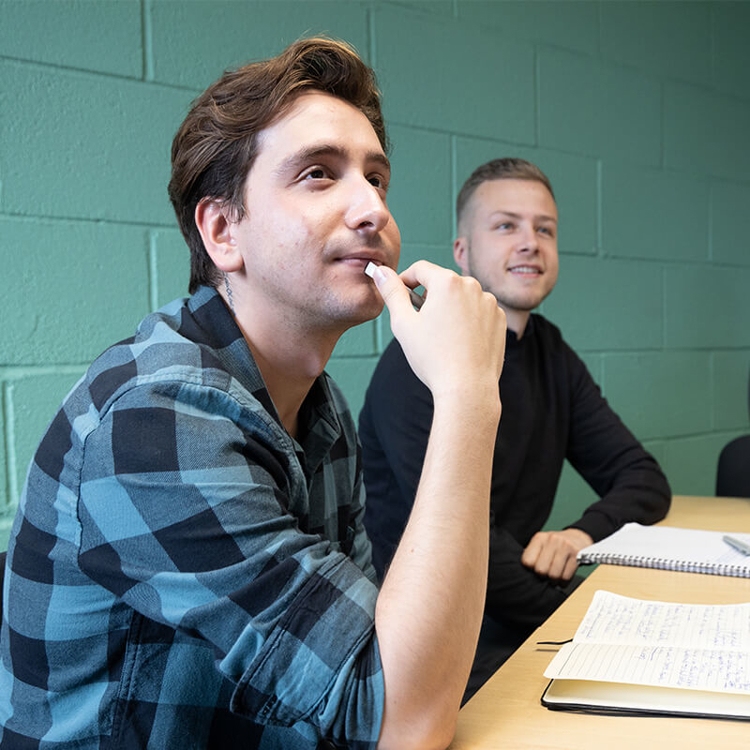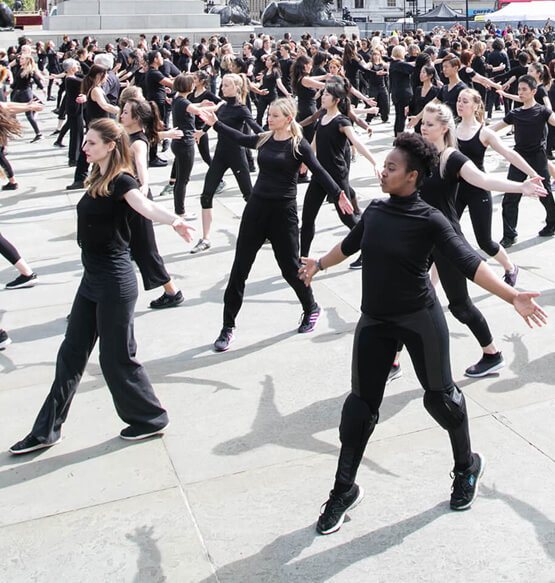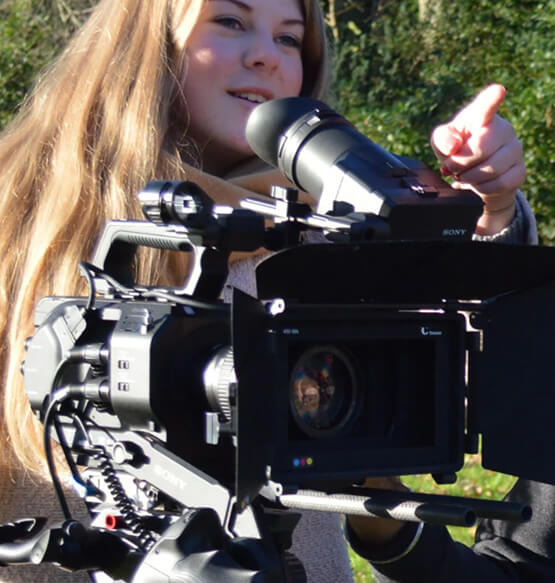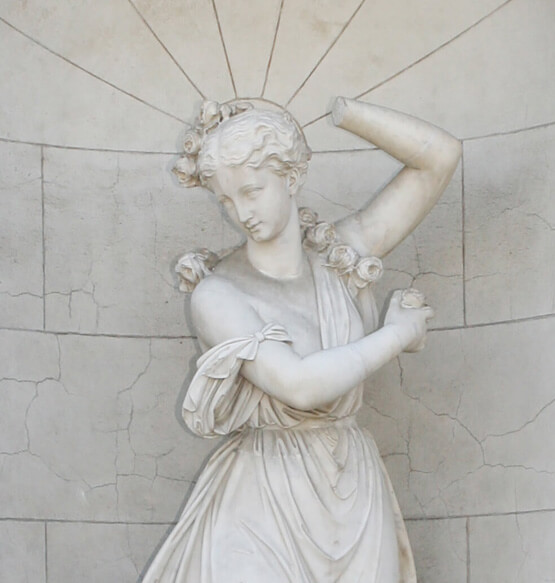Duration:
1 year (full-time)
2 years (part-time)
Please add an additional year if undertaking the Professional Experience Year: integrated 2-year masters
Number of credits:
MA: 180
PGDip: 120
Start date(s):
September 2025
September 2026
Anyone willing to develop can achieve their full potential here. Our cutting-edge Creative Writing MA is at the forefront of literary MA provision in the UK.
Did you know?
Creative Writing ranked 1st in London for Learning Resources (National Student Survey 2024).
Roehampton's in-house Fincham Press provides opportunities for you to see your writing published, and gain hands-on experience of the publishing process.
Modules
Professional Experience Year
This course also offers the option of a Professional Experience Year. This programme combines dynamic career modules with flexible placement opportunities. After completing your first year of study, you'll then complete a full year of Professional Experience training as part of your degree. This will give you real career experience. This unique opportunity offers you distinct paths to build your expertise.

Skills
Graduate with a creative, professional skillset.
This incorporates studying;
- Popular, long-running modules: Writing for Young Readers, Short Stories and Novel, which explore writing in a variety of forms, all with the aim of helping you produce compelling, contemporary work of a publishable standard.
- Creative Contexts and Archives and Research, which will enable you to situate your work among other contemporary writers and enlarge your research skills.
Throughout the programme, you will be working with established, successful writers, all of whom are here to help you take your writing to the next level. Successful writers who have graduated from the programme include Holly Pester, Rachel Knightley, and Nikki Dudley.
You can also develop your professional skills by auditing the modules Copywriting and The Business of Writing.
Learning
A course built around your ambitions.
Here you can study and write literary fiction, fantasy, dark & transgressive fiction, horror, thriller and domestic noir, and you can write in a wide variety of forms. All modules are taught by published writers, and Roehampton's post-graduate experience is among the best in the country.
Come here to do your best writing. Come here with the aim of being published.
This year we have two new modules which respond to the growing demand for a wider range of contemporary writing. Genre Fiction is for writers of fantasy, horror and crime. Dark & Transgressive Writing works with erotic, hybrid, and dystopian fictions. More people than ever are reading fantasy fiction. Erotic writing is no longer a niche genre. Horror and Dark Fiction is part of mainstream popular culture. Crime and dystopian fiction are a vast and creative area.
Careers
Alongside writing for publication, graduates of this programme may pursue careers in journalism, copywriting and arts management.
‘My lecturers really care about all of us succeeding in our chosen careers. They encourage me to push myself and experiment with my writing, which is also helping prepare me for a career in publishing’.
Samantha Jo Gale, MA Creative Writing

Open days
Get a real taste of our campus, community and what it’s like to study at Roehampton
Applying
UK postgraduate students apply through our direct application system.
Specific entry requirements
A second-class honours degree is normally required but non-standard applications are also welcome, and applicants are invited to submit a portfolio of writing, consisting of approximately 2000 words of prose (Fiction, Creative Nonfiction, Journalism) or 15 pages of poetry. Please upload your portfolio of writing on the online application form, which can be found by clicking the 'apply for the course' button.
General entry requirements
September 2025 entry tuition fees (UK)
| Level of study | Full-time | Part-time* |
| MA | £9,250 Professional Experience Year: £2,500 |
£4,625 |
| PGDip | £6,170 | £3,085 |
*Year 1 fee
We offer a wide range of scholarships and bursaries. See our financial support pages for UK students.
We also provide other ways to support the cost of living, including free buses and on-campus car parking, hardship support and some of the most affordable student accommodation and catering in London. Find out more about how we can support you.
International postgraduate students apply through our direct application system.
Specific entry requirements
A second-class honours degree is normally required but non-standard applications are also welcome, and applicants are invited to submit a portfolio of writing, consisting of approximately 2000 words of prose (Fiction, Creative Nonfiction, Journalism) or 15 pages of poetry. Please upload your portfolio of writing on the online application form, which can be found by clicking the 'apply for the course' button.
General entry requirements
September 2025 entry tuition fees (international)
| Level of study | Full-time | Part-time* |
| MA | £18,250 Professional Experience Year: £2,500 |
£9,125 |
| PGDip | £12,170 | £6,085 |
*Year 1 fee
We offer a wide range of scholarships and bursaries. See our financial support pages for international students.
We also provide other ways to support the cost of living, including free buses and on-campus car parking, hardship support and some of the most affordable student accommodation and catering in London. Find out more about how we can support you.









